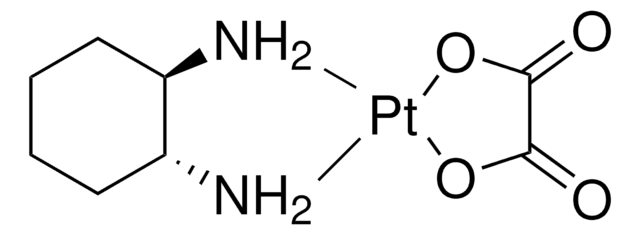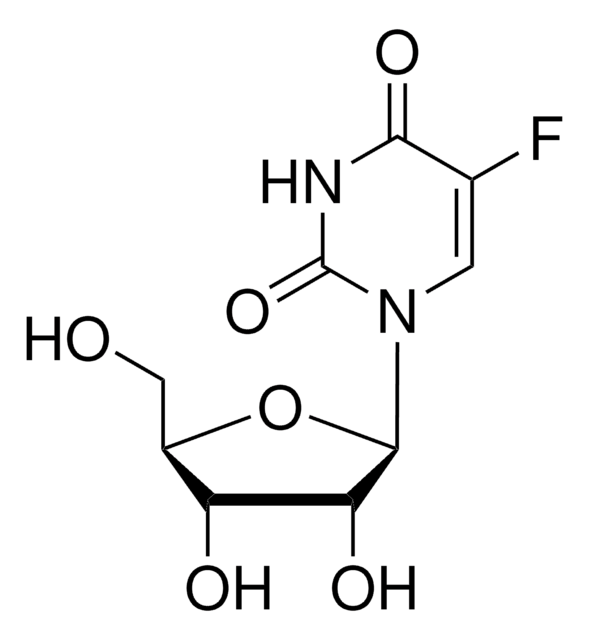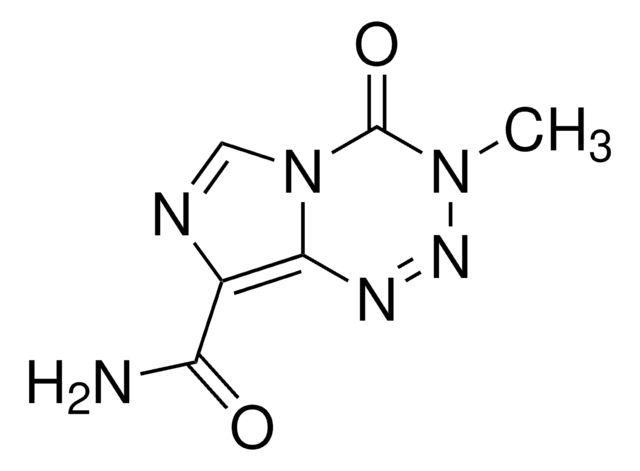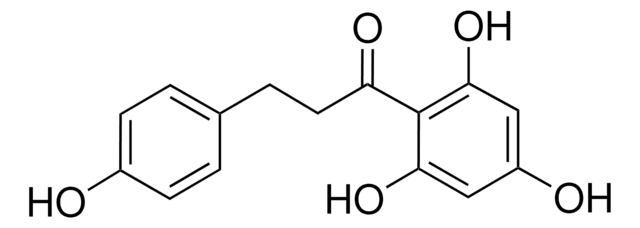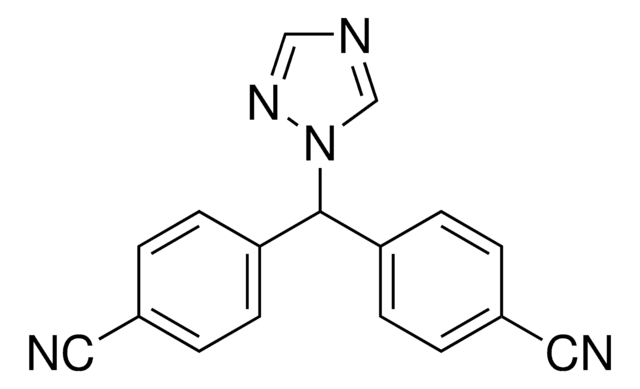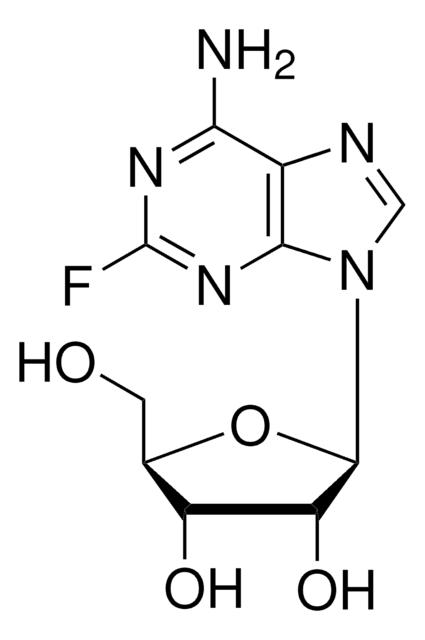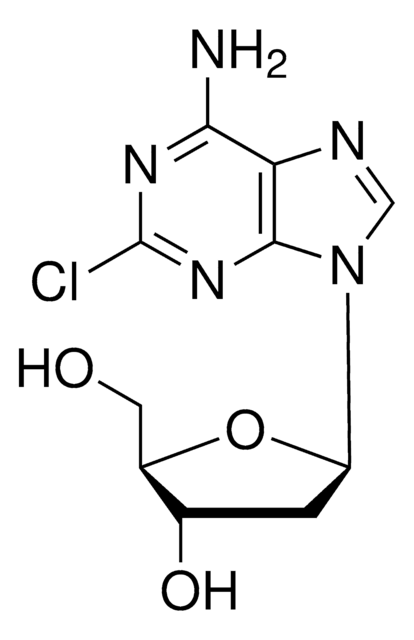SML0653
Capecitabine
≥98% (HPLC)
Synonym(s):
5′-Deoxy-5-fluoro-N-[(pentyloxy)carbonyl]cytidine, Ro-9-1978
About This Item
Recommended Products
Quality Level
Assay
≥98% (HPLC)
form
powder
optical activity
[α]/D +80 to +100°, c = 0.5 in methanol
color
white to beige
solubility
H2O: 10 mg/mL, clear (warmed)
storage temp.
2-8°C
SMILES string
O[C@H]1[C@@H](O)[C@H](N2C(N=C(NC(OCCCCC)=O)C(F)=C2)=O)O[C@@H]1C
InChI
1S/C15H22FN3O6/c1-3-4-5-6-24-15(23)18-12-9(16)7-19(14(22)17-12)13-11(21)10(20)8(2)25-13/h7-8,10-11,13,20-21H,3-6H2,1-2H3,(H,17,18,22,23)/t8-,10-,11-,13-/m1/s1
InChI key
GAGWJHPBXLXJQN-UORFTKCHSA-N
Gene Information
human ... TYMS(7298)
Looking for similar products? Visit Product Comparison Guide
Application
- in combination with gemcitabine to achieve glutamine deprivation by enhancing the sensitivity of expression in pancreatic ductal adenocarcinoma (PDAC) cells to inhibitors of glutamine metabolism and study its effect on PDAC cell survival
- to study the drug metabolic function in a two-organ microfluidic system
- as an anti-cancer agent to study its cytotoxic activity alone or in combination with B87 on cancer cells
Biochem/physiol Actions
Signal Word
Danger
Hazard Statements
Precautionary Statements
Hazard Classifications
Carc. 1B - Muta. 2 - Repr. 1B
Storage Class Code
6.1C - Combustible acute toxic Cat.3 / toxic compounds or compounds which causing chronic effects
WGK
WGK 3
Flash Point(F)
Not applicable
Flash Point(C)
Not applicable
Choose from one of the most recent versions:
Certificates of Analysis (COA)
Don't see the Right Version?
If you require a particular version, you can look up a specific certificate by the Lot or Batch number.
Already Own This Product?
Find documentation for the products that you have recently purchased in the Document Library.
Customers Also Viewed
Our team of scientists has experience in all areas of research including Life Science, Material Science, Chemical Synthesis, Chromatography, Analytical and many others.
Contact Technical Service
